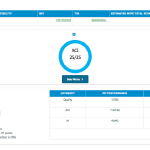(Reuters Health)—Patient portals at U.S. hospitals leave a lot to be desired in terms of privacy when individuals want to share access with an informal caregiver, a new study finds. At nearly half of 102 hospitals included in the study, personnel advised that patients share their account password to give access to a family member…

Experts Offer Tips for Saving Time on Electronic Medical Records
ATLANTA—“Bane of our existence” and “pajama time”—the dreaded time spent at night catching up on documentation—are a couple of phrases associated with the electronic medical record (EMR). To try to ease the frustration and limit the amount of time physicians have to spend using the systems, two experts reviewed tools and tricks for Epic and…

The Plight of the Retail Pharmacist
She wanted me to call in an antibiotic. My sister, a lawyer, often tells me how the ethics of her profession govern even her extra-professional acts. She feels that when she was sworn into the New York State bar, she lost the freedom to bend the truth. She would never, for example, attempt to smuggle…

Administrators & Payers Have Hijacked Our Medical Records
I attended medical school in the 1960s, when Dr. Lawrence Weed reinvented the medical record to organize and leverage the physician’s patient evaluation for clarity and quality of care—what he dubbed “the problem-oriented medical record.”1,2 My internal medicine house officer training at Massachusetts General placed a high value on efficient, effective medical records and communication…
Switch to Electronic Health Records Tied to Fewer Hospital Deaths
(Reuters Health)—Hospitals that switch from paper to electronic health records may eventually see lower death rates than they had before, but a U.S. study also suggests that fatalities may first increase as the transition gets underway. Researchers examined the degree of digitization and 30-day death rates for patients age 65 and older at 3,249 hospitals…

Avoid Errors: Insights into Ensuring Accurate Data in EHRs
With the increasing use of electronic health records and quality measure reporting requirements, data collection has become crucial for rheumatologists. But how do clinicians prevent human error and ensure data accuracy?
Priority List Could Help Produce Better Pediatric EHRs
NEW YORK (Reuters Health)—Children’s electronic health records (EHRs) are missing functions “essential” for managing children’s health, according to a multistakeholder work group that produced a “high-priority” list of EHR requirements. “Most doctors caring for children in hospitals or office practices now use EHRs, which benefit children and families by offering decision-support and other safety features…

Rheumatology Research Foundation Honors Award Recipients
SAN DIEGO—In November, the Rheumatology Research Foundation honored 155 award and scholarship recipients at the Awards Celebration, an annual luncheon, held in conjunction with the ACR/ARHP Annual Meeting. The event celebrates the accomplishments of rheumatology professionals who have received funding from the Foundation. In congratulating the award recipients, executive director Mary Wheatley, CAE, IOM, emphasized…

Unwise Choices: EHRs, PBMs, Drug Costs Are Leading to Physician Burnout
My dear electronic health records How do I dislike thee? Let me count the ways Adaptation of Sonnet 43 By Elizabeth Barrett Browning, 1806–1861 As my tenure as physician editor winds down, it’s worth reviewing some of the more nettlesome issues confronting clinicians that have been previously discussed in these pages and gauge their current…

RISE Registry Data Now Available for Research Purposes
As medical professionals, we understand the impact quality research can have on how we care for our patients. The extensive adoption of electronic health records (EHRs) has enabled the collection of big data in rheumatology. This has provided a new and unique opportunity for the rheumatology community to conduct in-depth research into how patients are…
- « Previous Page
- 1
- 2
- 3
- 4
- …
- 9
- Next Page »